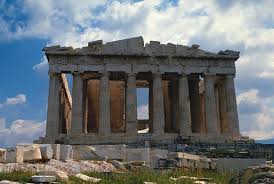The Fourth Beast: The Roman Empire Stage
Dani’el 2:40 and 7:23a
The fourth beast was the Roman Empire stage DIG: What was different about this fourth beast than all the rest? How did they treat conquered peoples? Where they stronger or weaker than the Greek Empire? How long does this element of imperialism last?
Dani’el states: Finally, the fourth beast will be a fourth kingdom that will appear on the earth (Dani’el 7:23), strong as iron – for iron breaks and smashes everything – and as iron breaks things to pieces, so it will crush and break all the others (Dani’el 2:40). This was the Roman Empire. But in a sense, it would be wrong to call the entire fourth kingdom the Roman Empire because the fourth kingdom has five distinct stages.
Dear Heavenly Father, Praise Your Almighty power and infinite wisdom. You know all things. You have every detail all figured out and You have already won the final battle of the ages (Revelation 19:11-21)! You will reign eternally! We love and worship You! In the Holy name of Your Son and His power of resurrection. Amen
The strength of the metals was increased in each successive empire. Therefore, just as silver was stronger than gold, and the iron of the Roman Empire was stronger than the Greek Empire of bronze. Ultimately, this kingdom would crush and break all the others. But its distinctiveness would outweigh its accomplishments.

This fourth beast was really unique, and what was really different about the Roman Empire, that was not true of the other three, was its policy of imperialism. When Babylonia conquered another nation, they did not send Babylonians in to rule the subjugated people. The Babylonians put leaders from the conquered country in charge, but they ruled under Babylonian authority. For example when Babylon destroyed Judah, they didn’t put a Babylonian in charge of the province of Judah, they put Gedaliah, a Jew, to rule under Babylonian authority. The Medo-Persians followed the same policy. When they conquered another nation, they did not send Medes or Persians to rule the subjugated people. They put leaders from the conquered country to rule over their own people. So under the Medes and the Persians, for example, people like Zerubbabel and Nehemiah, who were Jews, ruled Isra’el under Medo-Persian authority. When the Greeks conquered, they followed the same procedure, and the Jewish high priest became the ruler under Greek authority.37
But that changed with Rome, and when Rome conquered, they sent Romans in to rule. That is why in the New Covenant you read about Roman procurators such as Pilot, Felix and Festus. There was a new policy not followed by the previous three empires, the policy of imperialism, which makes it different from the others. This stage lasted from 59 BC to 364 AD. It is the element of imperialism that continues through all of its five stages.



Leave A Comment